Year 9
Core subjects:
English
Pupils are introduced to a range of more demanding tasks in Year 9. Reading increases in complexity and maturity of text and theme, and pupils’ critical responses are encouraged. A complete Shakespeare play is studied and examined in the Trinity term.
Mathematics
Pupils in Year 9 start the Edexcel IGCSE Mathematics course with the aim of finishing the course by the end of the Michaelmas Term in Year 11. The year group is setted and is normally expanded from four sets in Year 8 to five sets in Year 9, with a corresponding reduction in set size. The top set is often slightly smaller as students in this set will have been identified as pupils who are able to prepare for the additional qualification of IGCSE Further Pure Mathematics which will be examined, along with IGCSE Mathematics in May of Year 11. Set 5 is often smaller and is usually made up of students who will sit the Foundation Tier of IGCSE. New entrants to Year 9 are given a mathematics competency test to inform appropriate setting.
French
In Year 9, students are exposed to a wider range of grammatical structures which help them to understand and use more complex sentences. While increasing their awareness of the Francophone world, students are introduced to basic translation and start to explore exam technique by working through GCSE-style questions.
Second Modern Foreign Language
In Year 9, pupils continue with the German or Spanish they started in Year 8 but with two additional lessons in order to optimise genuine choice at GCSE.
Biology
Students start on the Cambridge IGCSE Biology course with Unit 1 which covers aspects of diversity, classification, cells and cell processes. They then continue onto Units 2 and 3 which cover animal and plant nutrition. The course is taught using practical sessions to complement students’ learning and understanding of the topics covered.
Chemistry
Pupils complete the key ideas of the National Curriculum. Focusing on practical investigations, they study topics including further study of the periodic table and an introduction to organic chemistry. They then progress on to the study of IGCSE topics such as atomic structure and chemical bonding.
Physics
Students cover the remaining broad areas of the subject before embarking on the IGCSE course. Magnetism and electromagnetism, sound and hearing and the physics of motion are all studied.
Humanities:
History
In the Michaelmas term, the Industrial Revolution and causes of the First World War are considered. This is followed in the Lent term by the causes of the Second World War. All those in Year 9 visit Beth Shalom Holocaust Memorial Centre in the Trinity term.
Geography
The course follows the Oxford University Press Geography 123 Series Book 3. The main topics covered are China, USA, tourism, trade and the ocean. The year group enjoys a summer term field trip to Upper Teesdale.
Religion, Ethics & Philosophy
Now we have a clear understanding of the world religions, we move on in Year 9 to exploring concepts. We begin by looking at recent developments to medical science such as genetic engineering and stem cell research. Students enjoy finding out how technologies have been pioneered to help the human race. Throughout, we ask ourselves whether these advances are ethical. Next, we look at examples of historical and recent human suffering and ask searching questions about God and human nature. Finally, we look at the very modern issue of the media; how religion and religious believers are portrayed and the positives and negatives of living in a technological world. Many students enjoy these studies so much they wish to continue their REP studies to GCSE.
Non-Core subjects:
Art
The projects chosen are relevant to those at GCSE and are interesting to those who find ideas challenging with an emphasis on individual development of ideas and their realisation. Project examples may include designs based on the images of a chosen artist, as well as the design of an artefact using a wide range of materials.
Classics
The top set continues to the Cambridge Latin Course Unit 3. Other sets study aspects of Roman civilisation: the Punic Wars, Roman Britain, the Roman Army and a study of Roman sport and leisure. There is a whole year trip to Hadrian’s Wall in September.
Design Technology
Two projects are completed: resistant materials and systems and control. The projects are de- signed to give the students an understanding of the content of the two possible options at IGCSE. They use computer-aided design (CAD) and manufacture, gaining experience in 3D printing of components and laser-cutting as well as developing further hand skills during the completion of a robotic arm and MP3 speaker dock.
Games
In the Michaelmas Term, girls are coached in hockey and boys in rugby. In the Lent Term, boys take hockey and girls are coached in netball, with some pupils choosing swimming or squash. In the Trinity Term, it is cricket for boys and girls, and many also choose to participate in athletics and tennis.
Computer Science
In Year 9, the subject focuses on ensuring that students become digitally literate. They are encouraged to use and develop their ideas through information and communication technology at a level suitable for the future workplace and as active participants in a digital world. Topics of study include: computing in the wider context (legal, moral and ethical issues), mobile app design and coding (Python). The PowerPoint module of the Microsoft Office Specialist qualification is started.
Music
Students have one lesson devoted to the study of horror music and composing their own horror piece utilising the in-built recording facilities in the school keyboards. The second lesson is devoted to the study of the history of popular music from the 1950s onwards for half of the year and the study of music in the media for the second half of the year, with the students working in groups to create their own radio advert.

